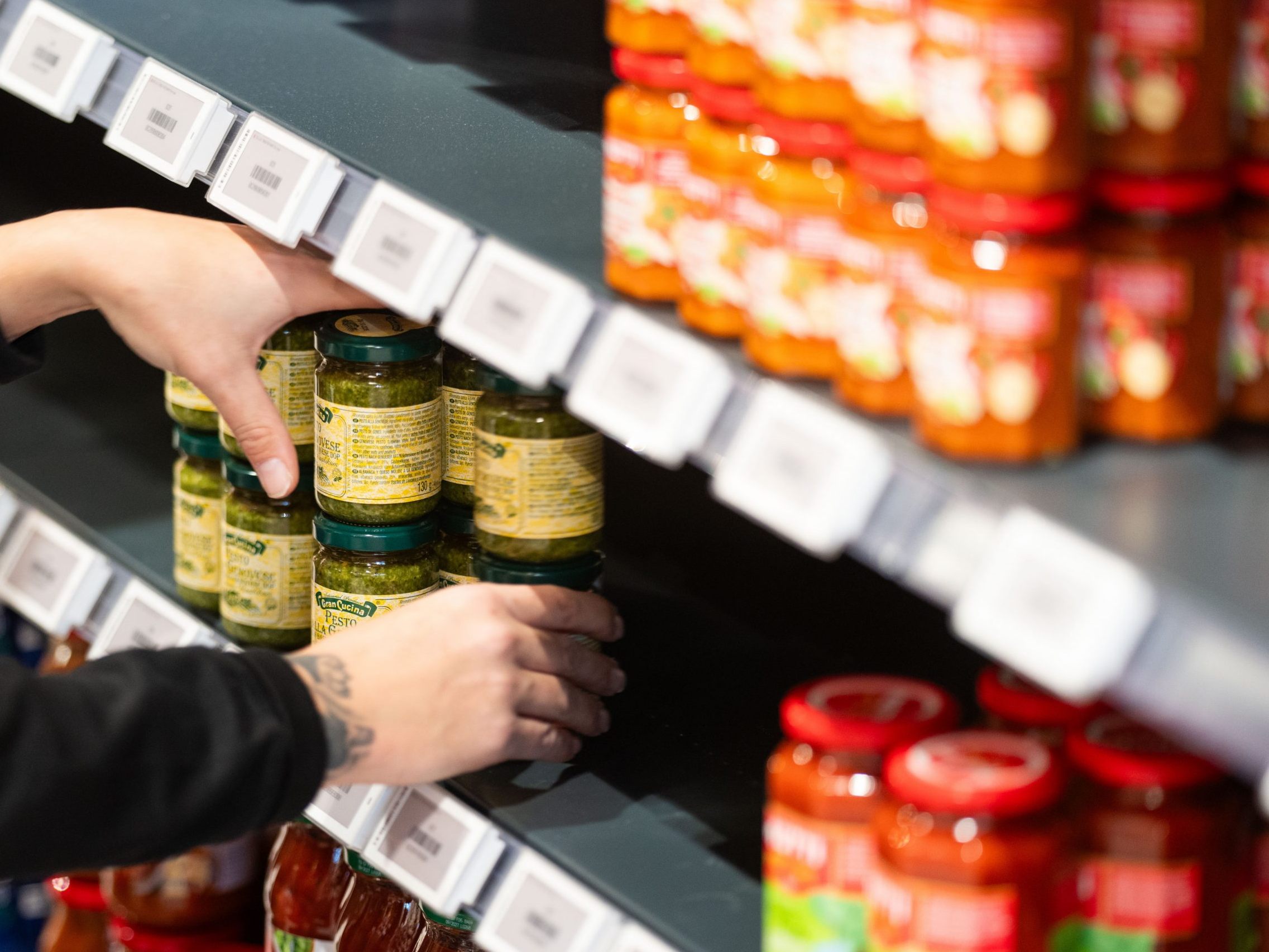Intervention in Food Prices: This is What Economists Say

The economists mostly met the proposal to intervene in food prices with skepticism. The price increase in July to 3.5 percent was less due to the costs of food, but rather to the prices for household energy, especially electricity, quoted the "Salzburger Nachrichten" WIFO inflation expert Josef Baumgartner.
Economists See High Food Prices as a European Problem
Even the left-wing government in Spain did not introduce price controls, said Baumgartner. There, VAT rates were reduced. However, the wealthy would benefit more from this, added the WIFO economist. An implementation would only take effect towards the end of the year - just when the price surge due to the expiration of the electricity price cap, the re-imposed green electricity surcharges, and higher network costs would disappear.
For Holger Bonin, head of the Institute for Advanced Studies (IHS), it is questionable whether VAT reductions would reach consumers. After all, companies are also under pressure from inflation and rising costs. Apart from that, a tax reduction would not be an option due to the state's budgetary constraints, as Marterbauer also explained.
The rising food prices are not an Austrian, but a European problem: Due to foot-and-mouth disease, meat prices have risen, said Baumgartner. Cold weather and lower harvests have made fruit and vegetables more expensive, and crop failures in individual products like oranges and coffee are attributed to climate change, noted Bonin.
Also Discussion on Wage Negotiations
According to Bonin, state impulses such as accelerated new construction, higher willingness to switch in the energy sector, and more price transparency in the food sector are more effective than price interventions. A lower density of food markets would reduce fixed costs - but consumers would have to accept longer distances. Bonin also suggests supporting those in need with subsidies. A certain restraint in wage negotiations could have positive effects on inflation, quoted the "Oberösterreichische Nachrichten" the IHS economist Sebastian Koch. For PRO-GE Chairman Reinhold Binder, however, securing purchasing power is a priority in wage negotiations, as reported by the "Oberösterreichische Nachrichten" on Wednesday.
Price-capped products are not a solution, as the example of Hungary shows, notes Koch. Retailers would no longer offer products with which they do not make a profit. This would fuel the black market. Christoph Badelt, President of the Fiscal Council, sees it similarly in the Ö1-Mittagsjournal: The question arises as to what counts as basic needs. A state price setting must eventually be lifted - and would then lead to a renewed price surge. Furthermore, it is no longer guaranteed that price-regulated standard products will be carried by retailers, according to Badelt. Rainer Will, Managing Director of the Trade Association, justifies the higher prices with the increased costs of trade - profitability lies between 0.5 and 2.5 percent. High costs would burden trade. Blaming trade for the price increases is "like blaming the postman for the bad tax assessment," said Will in the Ö1-Morgenjournal.
"Austria Surcharge" of the Industry on Food Prices
Will also points to territorial supply restrictions. Large manufacturers make it very difficult or even impossible for retailers to source and resell products in other EU countries. International manufacturers can therefore demand different prices in individual countries, with smaller countries like Austria or Belgium typically being disadvantaged. Marterbauer referred to the example of Cremissimo ice cream, which is offered in Austria for 5.99 euros, in Germany for 2.89 euros. The Federal Competition Authority described this as an "Austria price surcharge" of the global food industry. The finance minister should advocate for a ban on this practice at the EU level, according to Will. Will agrees with the Chamber of Labor (AK) on this: AK economist Michael Ertl also points to the "Austria surcharge" on branded products. It must be checked to what extent the industry actually charges an "Austria surcharge," says Badelt. If this is true, it would be a case for the EU Commission. Otherwise, one would have to ensure higher competition intensity, noted Badelt.
(APA/Red9
This article has been automatically translated, read the original article here.
Du hast einen Hinweis für uns? Oder einen Insider-Tipp, was bei dir in der Gegend gerade passiert? Dann melde dich bei uns, damit wir darüber berichten können.
Wir gehen allen Hinweisen nach, die wir erhalten. Und damit wir schon einen Vorgeschmack und einen guten Überblick bekommen, freuen wir uns über Fotos, Videos oder Texte. Einfach das Formular unten ausfüllen und schon landet dein Tipp bei uns in der Redaktion.
Alternativ kannst du uns direkt über WhatsApp kontaktieren: Zum WhatsApp Chat
Herzlichen Dank für deine Zusendung.








